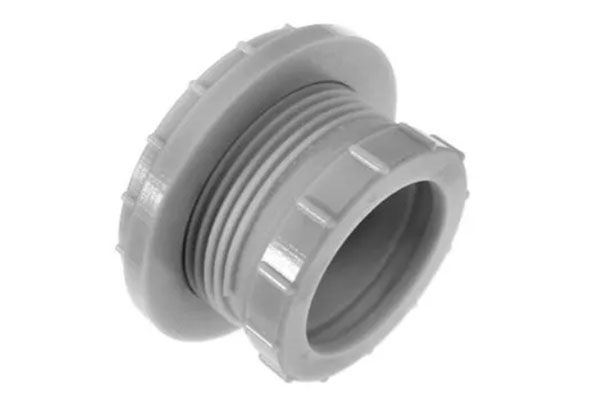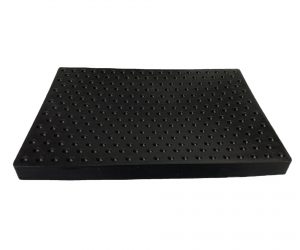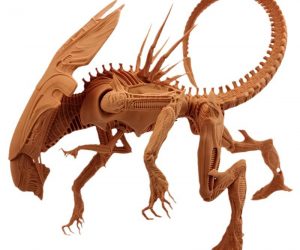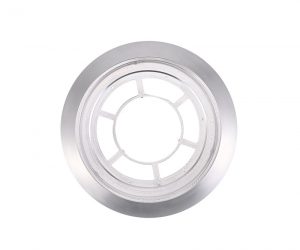1. Introduction
contract CNC machining has emerged as a strategic option for many companies. By outsourcing CNC machining operations to specialized contractors, businesses can tap into a wealth of resources, expertise, and advanced technologies without the need for significant in - house investment. This approach allows for a more agile manufacturing process, enabling companies to scale production up or down based on market demand, experiment with new product designs, and quickly respond to changes in the supply chain.
Contract CNC machining is not just a cost - saving measure; it is a strategic enabler of flexibility in manufacturing. In the following sections, Yigu Technology will explore in detail how it functions as a flexible manufacturing solution, the various benefits it offers, and how to effectively implement it in a manufacturing enterprise.
2. Understanding Contract CNC Machining
2.1 Definition and Basics
Contract CNC machining, at its core, is a specialized form of outsourcing within the manufacturing realm. It involves a company (the client) entering into a contractual agreement with an external CNC machining service provider (the contractor). The contractor is then responsible for performing a wide array of machining operations on behalf of the client, operations that would otherwise be carried out in - house if the client had the necessary resources and capabilities.
The basic principle of CNC machining lies in the use of computer - controlled systems to operate machine tools. In a traditional machining setup, the operator directly controls the movement of the machine tools, such as lathes, mills, or drills, by hand. However, in CNC machining, the entire process is automated and guided by a set of pre - programmed instructions. These instructions are typically generated from a 3D model of the part to be machined, which is created using computer - aided design (CAD) software. The CAD model is then translated into a set of numerical control (NC) codes through computer - aided manufacturing (CAM) software. These NC codes, often in the form of G - codes and M - codes, precisely define the movements of the machine tool, the speed of the spindle, the feed rate of the cutting tool, and other crucial parameters.
For Yigu Technology example, let's consider the production of a complex aerospace component. The design engineer first creates a detailed 3D CAD model of the component, specifying all its dimensions, tolerances, and surface finishes. This CAD model is then imported into the CAM software. The CAM software analyzes the model and generates a sequence of G - codes. These G - codes might include commands like "G01 X10 Y20 Z5 F100", which tells the CNC machine to move the cutting tool in a linear path to the coordinates X = 10, Y = 20, Z = 5 at a feed rate of 100 units per minute.
Once the NC codes are generated, they are transferred to the CNC machine. The CNC machine reads these codes and uses them to control the motion of its axes (usually X, Y, Z, and sometimes additional rotational axes in multi - axis machining). The machine tool then positions the cutting tool accurately and removes material from the workpiece, following the programmed instructions, to create the desired component. This process ensures a high level of precision and repeatability, as the machine follows the exact same instructions for each part it produces.
The Yigu Technology table below shows a simple comparison between traditional manual machining and CNC machining in terms of precision, repeatability, and complexity handling:
| Aspect | Traditional Manual Machining | Usinage CNC |
| Precision | Limited by the operator's skill, typically within ±0.1 - 0.5 mm | Can achieve sub - micron precision, often within ±0.001 - 0.01 mm |
| Repeatability | Varies depending on the operator's consistency, may have noticeable differences between parts | High repeatability, with parts having consistent dimensions within tight tolerances |
| Complexity Handling | Difficult to produce highly complex geometries, requires significant operator skill and experience | Can easily handle complex 3D geometries with multiple features and contours |
This high - level of precision and repeatability in CNC machining, which forms the basis of contract CNC machining, is what makes it so valuable in modern manufacturing, especially for industries with strict quality requirements such as aerospace, automotive, and medical device manufacturing.
4. Key Benefits Enabling Flexibility
4.1 Cost - Efficiency
Cost - efficiency is a cornerstone benefit of contract CNC machining that significantly contributes to its role as a flexible manufacturing solution. By outsourcing CNC machining operations, companies can avoid the substantial capital investments associated with establishing and maintaining an in - house machining setup.
The cost of purchasing high - quality CNC machines can be exorbitant. For Yigu Technology example, a mid - range 5 - axis CNC machining center can cost anywhere from \(100,000 to \)500,000. In addition to the initial purchase price, there are ongoing costs such as maintenance, upgrades, and replacement of worn - out parts. Maintenance costs alone can amount to 5 - 10% of the machine's value per year. A study by a manufacturing cost research firm found that companies with in - house CNC machining spend an average of \(50,000 - \)100,000 per year on machine maintenance, depending on the number and complexity of the machines.
Labor costs are another major expense in in - house machining. Hiring and training skilled CNC operators, programmers, and maintenance staff can be costly. Skilled CNC machinists typically command an annual salary of \(50,000 - \)80,000, and in some high - demand areas, this can be even higher. When outsourcing to a contract CNC machining provider, the client company can eliminate these labor - related costs. The contract manufacturer, through economies of scale, can spread these labor costs across multiple clients, offering more cost - effective services.
Contract CNC machining also allows for cost - effective production in terms of material waste reduction. Contract manufacturers, with their expertise and advanced technology, are often more efficient in material utilization. They can optimize cutting paths, reduce scrap rates, and make the most of the raw materials. For instance, in the production of aluminum components, a contract CNC machining provider may be able to reduce material waste by 10 - 20% compared to an in - house operation that is less experienced or lacks the latest optimization software. This not only saves on material costs but also has environmental benefits.
The Yigu Technology table below shows a comparison of the approximate annual costs between in - house CNC machining and contract CNC machining for a medium - sized production run:
| Cost Component | In - House CNC Machining | Contract CNC Machining |
| Machine Purchase and Depreciation (assuming a 5 - year lifespan for a $300,000 machine) | $60,000 | $0 (no direct investment) |
| Maintenance and Repairs | $30,000 | Included in contract price (estimated savings of $30,000) |
| Labor (for 2 full - time machinists) | $120,000 | $0 (no in - house labor) |
| Material Waste (estimated for a given production volume) | $20,000 | $10,000 (assuming 50% reduction) |
| Total Annual Cost | $230,000 | Estimated contract cost: \(100,000 - \)150,000 (substantial savings) |
This cost - efficiency provided by contract CNC machining gives companies the financial flexibility to allocate resources to other critical areas of their business, such as research and development, marketing, or expanding their product lines. It also allows them to be more responsive to market changes, as they are not burdened with high fixed costs during periods of low demand.
4.2 Access to Advanced Technology and Expertise
Access to advanced technology and expertise is another crucial factor that makes contract CNC machining a flexible manufacturing solution. Contract CNC machining providers are often at the forefront of technological innovation in the machining industry.
These providers invest heavily in the latest CNC machine tools, which are equipped with state - of - the - art features. For Yigu Technology example, modern 5 - axis CNC machines can perform complex machining operations with high precision. They can simultaneously move the workpiece along five axes (X, Y, Z, A, and B), allowing for the production of intricate geometries that would be extremely difficult or impossible to achieve with traditional 3 - axis machines. In the aerospace industry, components such as turbine blades require high - precision machining with complex curves and angles. A contract CNC machining provider with 5 - axis capabilities can produce these blades with the required accuracy and surface finish, ensuring optimal performance.
In addition to advanced machine tools, contract manufacturers also use the latest software for design, programming, and simulation. Computer - aided design (CAD) and computer - aided manufacturing (CAM) software have become essential tools in CNC machining. These software programs enable the creation of highly detailed 3D models of parts and the generation of optimized machining instructions. For instance, CAM software can analyze a CAD model and automatically generate the most efficient tool paths for a CNC machine, taking into account factors such as the type of material, the cutting tool, and the desired surface finish. Some advanced CAM software even has built - in simulation capabilities, allowing the operator to virtually test the machining process before actually running the machine. This helps to identify and correct any potential issues, such as tool collisions or incorrect machining sequences, reducing the risk of errors and costly rework.
Contract CNC machining providers also employ a team of highly skilled professionals. These include experienced CNC programmers, machinists, and engineers. CNC programmers are responsible for translating the design specifications into the code that the CNC machine can understand. They need to have a deep understanding of both the machining process and the programming language used by the CNC machine. A skilled programmer can optimize the code to improve machining efficiency, reduce cycle times, and ensure high - quality results. Machinists, on the other hand, are responsible for setting up and operating the CNC machines. They need to have practical skills in handling the machine, changing tools, and monitoring the machining process. Engineers in a contract CNC machining shop often play a role in process improvement, quality control, and providing technical advice to clients. They can offer valuable insights on material selection, design optimization, and how to achieve the best possible results for a particular machining project.
For a small - to - medium - sized enterprise (SME) that may not have the resources to invest in the latest technology or hire a large team of experts, partnering with a contract CNC machining provider provides access to these capabilities. This allows the SME to produce high - quality parts that meet the same standards as those of larger companies. It also gives them the flexibility to take on more complex projects that they would not have been able to handle on their own. For example, a startup in the medical device industry may have a great product idea but lacks the in - house expertise and technology to produce the precision components required. By working with a contract CNC machining provider, they can leverage the provider's advanced technology and skilled team to bring their product to market faster and with higher quality.
5. Real - World Examples of Flexible Contract CNC Machining
5.1 Aerospace Industry Case
In the aerospace industry, precision and reliability are of utmost importance. One notable example of how contract CNC machining has served as a flexible manufacturing solution is the case of a leading aerospace company, AeroTech.
AeroTech was developing a new generation of high - performance aircraft engines. These engines required the production of intricate components, such as turbine blades and compressor disks, with extremely tight tolerances. The design of these components was highly complex, featuring complex 3D geometries, thin walls, and precise cooling channels.
Rather than investing in a large - scale in - house CNC machining setup, AeroTech decided to partner with a contract CNC machining provider, Precision Machining Solutions. Precision Machining Solutions had a state - of - the - art facility equipped with the latest 5 - axis CNC machines, high - speed milling equipment, and advanced metrology systems.
The flexibility offered by contract CNC machining was evident from the start of the project. During the initial design phase, AeroTech's engineers made several design iterations based on aerodynamic simulations and performance testing. With a contract CNC machining partner, these design changes could be quickly translated into production. Precision Machining Solutions was able to reprogram their CNC machines in a matter of days, allowing for the rapid production of updated prototypes. This significantly reduced the time required for the design - validation cycle, which is crucial in the aerospace industry where time - to - market can be a competitive advantage.
When it came to production, the Yigu Technology contract CNC machining provider was able to scale up production as needed. As AeroTech's demand for the new engine components increased, Precision Machining Solutions was able to allocate additional machine time, hire temporary skilled labor, and optimize their production processes to meet the growing demand. This flexibility in production volume meant that AeroTech did not have to worry about under - or over - investing in manufacturing capacity.
Moreover, the high - level of precision and quality provided by Precision Machining Solutions was essential. The aerospace industry has some of the most stringent quality standards in manufacturing. The contract CNC machining provider had a comprehensive quality control system in place, including in - process inspections, post - machining measurements using coordinate measuring machines (CMMs), and strict adherence to aerospace - specific quality certifications such as AS9100. This ensured that every component produced met the exacting standards required by AeroTech, reducing the risk of costly rework or component failures in the field.
As a result of this successful partnership, AeroTech was able to bring its new aircraft engine to market faster than expected. The cost - savings achieved by outsourcing the CNC machining operations allowed the company to invest more in research and development, further enhancing the performance of their engines. The use of contract CNC machining in this case demonstrated how it can provide the flexibility, precision, and cost - efficiency required in the aerospace industry.
5.2 Medical Device Company Case
Consider the case of MedTech Innovations, a startup in the medical device industry. MedTech Innovations was developing a revolutionary surgical navigation system that required the production of highly precise and custom - designed components.
The components for the surgical navigation system had to be made with extreme accuracy to ensure the system's reliability during surgical procedures. They also needed to be lightweight, biocompatible, and able to withstand the sterilization processes used in medical facilities.
MedTech Innovations faced several challenges in bringing their product to market. As a startup, they had limited capital and resources. Investing in an in - house CNC machining setup would have required a significant upfront investment in machinery, software, and skilled labor. Additionally, they needed to be able to quickly iterate on their product design based on feedback from surgeons and clinical trials.
To overcome these challenges, MedTech Innovations partnered with a contract CNC machining company, MedPrecision Machining. MedPrecision Machining had extensive experience in the medical device industry and was well - versed in the specific requirements for medical components, such as biocompatible material selection and strict quality control.
During the prototype phase, MedPrecision Machining was able to quickly produce small batches of components based on MedTech Innovations' design specifications. The high - precision capabilities of their CNC machines ensured that the prototypes were accurate and met the strict tolerances required. This allowed MedTech Innovations to test the functionality of their surgical navigation system in a timely manner. Based on the feedback from these tests, MedTech Innovations made several design improvements. MedPrecision Machining was able to rapidly adapt to these changes, producing updated prototypes within a week. This iterative process was crucial for the development of the product, as it allowed MedTech Innovations to refine their design and improve the performance of the surgical navigation system.
Once the product design was finalized, MedPrecision Machining was able to scale up production to meet the growing demand. They had the capacity to handle medium - to - large - volume production runs while maintaining the high - level of quality required in the medical device industry.
Another significant advantage of working with a contract CNC machining provider was the access to a wide range of biocompatible materials. MedPrecision Machining was able to source materials such as titanium, stainless steel, and medical - grade plastics, and provide expert advice on the most suitable material for each component based on its function and the sterilization methods to be used.
In addition to production, MedPrecision Machining also assisted MedTech Innovations in the regulatory approval process. They provided detailed documentation of the manufacturing processes, quality control procedures, and material certifications, which were essential for obtaining FDA approval. Thanks to their collaborative efforts, MedTech Innovations was able to secure FDA approval for their surgical navigation system in record time. This success story highlights how contract CNC machining can provide the flexibility, precision, and regulatory support needed by medical device companies, especially startups, to bring their innovative products to market.
8. Conclusion
In Yigu Technology conclusion, contract CNC machining has emerged as an indispensable and highly flexible manufacturing solution in today's dynamic industrial landscape. Its multifaceted advantages have far - reaching implications for companies across various sectors, revolutionizing the way they approach production and product development.
The flexibility offered by contract CNC machining in terms of production volume and design customization is a game - changer. It allows businesses to navigate the unpredictable waters of market demand with ease. Whether it's ramping up production during peak seasons or making rapid design changes based on customer feedback or emerging trends, contract CNC machining provides the agility that traditional in - house manufacturing setups often lack. This adaptability is crucial for maintaining competitiveness in a global market where the ability to quickly respond to changes can be the difference between success and failure.
Cost - efficiency is another cornerstone of contract CNC machining's appeal. By eliminating the need for substantial capital investments in machinery, labor, and technology, companies can allocate their financial resources more strategically. This not only reduces overhead costs but also provides the financial flexibility to invest in other critical areas of the business, such as research and development, marketing, or expanding into new markets. The significant cost savings achieved through outsourcing CNC machining operations can have a direct positive impact on a company's bottom line, making it more sustainable and profitable in the long run.
FAQ
Q1: What is the minimum production volume required for contract CNC machining?
A1: There is no strict minimum production volume. Contract CNC machining providers can handle everything from one - off prototypes to large - scale production runs. However, for very small orders, the per - unit cost may be relatively higher as some fixed costs are spread over fewer units.
Q2: How can I ensure the quality of parts produced through contract CNC machining?
A2: First, choose a contractor with a strong quality assurance system, such as ISO certifications. Request pre - production samples for inspection and approval. During production, inquire about their in - process inspection procedures. Also, ask for detailed documentation of the machining process, material certifications, and final inspection reports.
Q3: Can contract CNC machining be used for all types of materials?
A3: Contract CNC machining can handle a wide range of materials, including metals like aluminum, stainless steel, titanium, and copper alloys, as well as plastics, composites, and some ceramics. However, the machinability of materials can vary. For example, titanium is more difficult to machine compared to aluminum. A good contract CNC machining provider will have the expertise to work with different materials and can advise on the best machining strategies for each.



